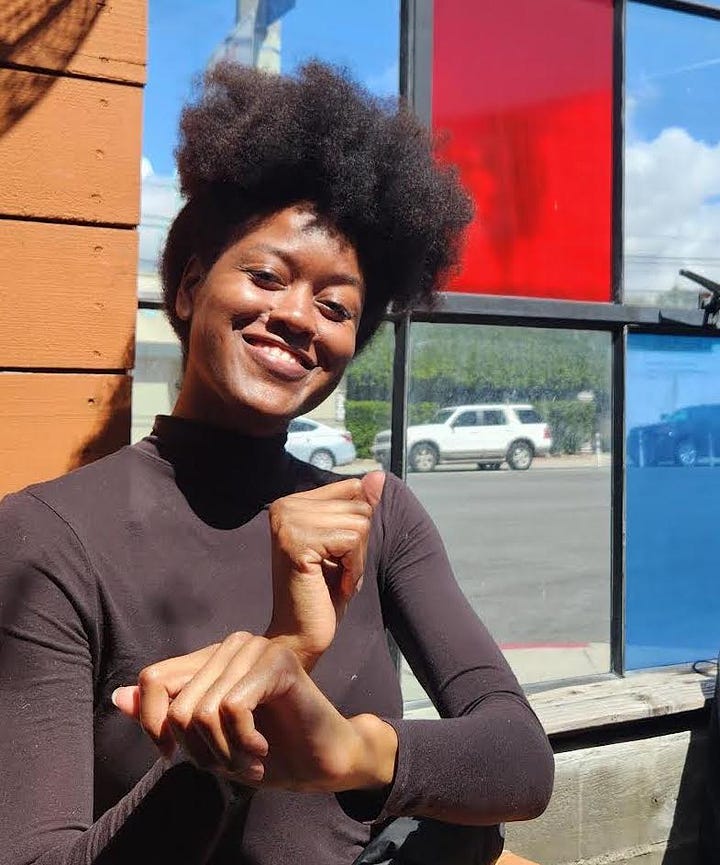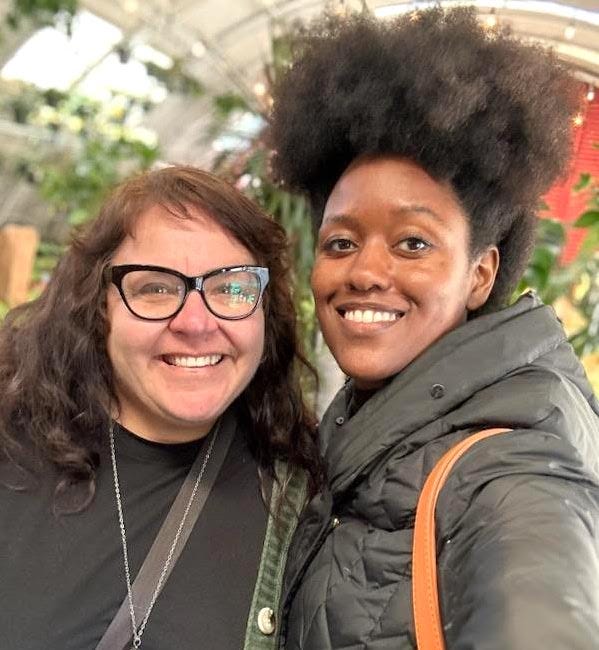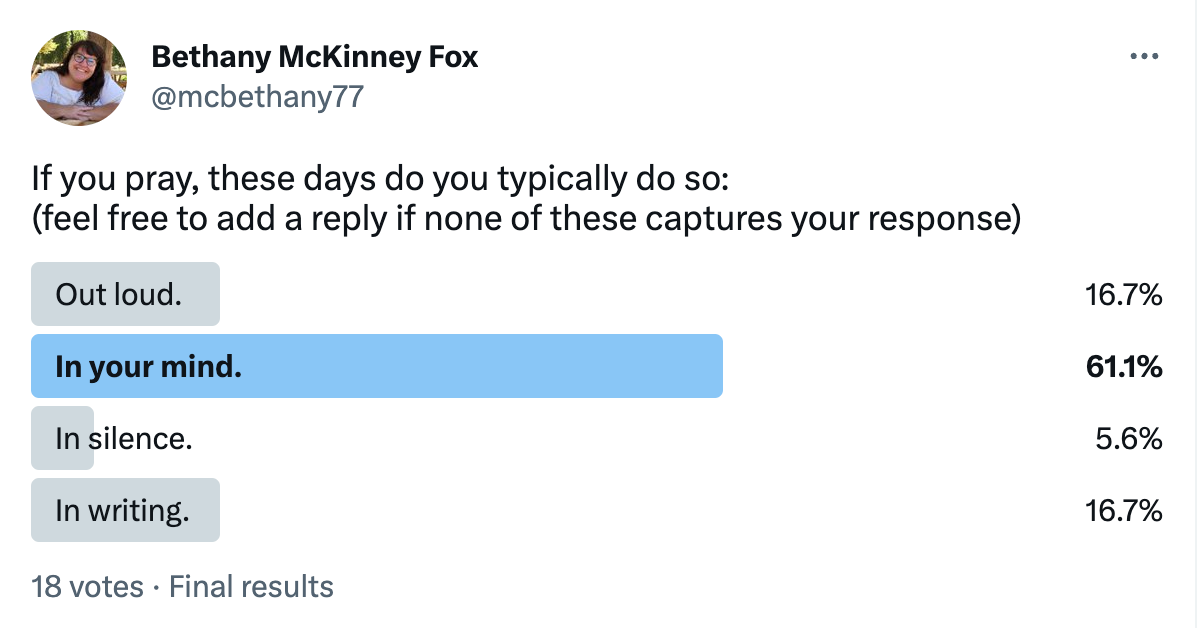My friend Dea and I were having lunch, and as it often does with us, the conversation turned to our creative and spiritual lives. I talked about what I shared in my previous post, Casualties in My Spiritual Life, and where I’ve been struggling lately (if you haven’t seen that, click here to read it, and then come back! I’ll wait.).
In terms of finding a sense of freedom and joy vocationally, I asked about her creative process (she’s an interdisciplinary artist, find her amazing work here), and how she understood her artistic work as responsive to and aligned with God’s calling in her life.


The thing is, some forms of work are more readily and broadly understood as “making a difference” in the world. Things like: being a schoolteacher, practicing medicine, feeding people, professional ministry, building houses, being a community organizer, social work – all those things that seem clearly “helpful” to other people in a direct way. (I think we should put things like “plumber” and “electrician” and “mechanic” and all the fix-y people in that category too, but for some reason - probably educational snobbery - they don’t always seem to get the props they deserve.)
Doing art tends not to be in this category (for a lot of people, anyway). And it wasn’t until two summers ago when a group of lovely artistic humans and I went through the book The Artist’s Way that I even got a twinkling of an inkling that pursuing creative curiosities could somehow be good for the world (this was also organized by Dea - this should really just be considered a Dea appreciation post). And even that God might have some role in nurturing and igniting those curiosities.
Dea described her creative process as something that happens both with God and responsively to the Spirit’s nudges along the way, as somehow both an act of following and an act of partnership. And as I talked about my own exploration of writing and other creative modalities, she encouraged me to talk to God about my work, and to pray about the misgivings I was having about exploring a creative path.
This is something my spiritual director will say too: “Maybe that’s something you should take into prayer” or some version of that. (I see a Sister of St. Joseph for spiritual direction every month.)
But it occurred to me that what I think someone means by “you should pray about it” and what they actually mean may not be the same thing. So I decided to ask Dea about her prayer life. I got very concrete. Particularly because she was describing her times of prayer as a key source for guidance and sparks for her creative projects and explorations.
Is there a specific time of day that you pray?
Where exactly are you?
What is the position of your body?
Do you actually say words out loud, or only in your mind?
Do you wait in silence to let God respond?
If not, (how) do you sense God’s voice back to you?
How long does a time of prayer usually last?
How does God give you guidance about particular creative projects?
Even though I’ve been praying with people for decades, and have been talking and hearing about people’s prayer lives for decades, I realized how rarely I had a full sense of what their personal times of prayer actually looked like. But as someone who appreciates thorough templates, the concreteness was helpful to me, particularly a detail that she prayed by talking to God out loud.
My times of centering prayer are silent (by design), and for many years now my times of verbal prayer have tended to be written. And based on a poll with only a handful of responses (I’m not that popular on Twitter!), it seems like most people pray in their heads.
But Dea’s description of speaking to God out loud shook something loose for me, especially since one of the two casualties in my spiritual life had to do with prayer. Speaking out loud simply feels more relational and more personal. So it felt like the next right thing to do. (Cue that song from Frozen 2, right? Also, yes, I’m a 40-something childless woman who just referenced Frozen 2.)
I continued to share that this season of uncertainty and waiting, particularly around my sense of vocation, feels difficult. How it’s disorienting not to have a clear sense of “what I’m doing next” (especially because people keep asking me). I often have a strong urge just to choose a path and grab the steering wheel and go full speed ahead, just so I can feel like I’m being productive and not “wasting” time.
But in my deepest place of knowing, in my true self, and in my sense of groundedness in God, I know that this is part of my growth right now: to wait, to be patient. The word I keep returning to is: unfolding. To take one step at a time and let things unfold gradually, instead of deciding on a destination and then constructing a 20-step plan to get there (which I am so good at! dang it!).
I told Dea that the one thing I did feel a nudge toward was to press into my creativity, but with a sense of meaningfulness, a sense of - like she expressed in her own work - God being in the mix.
She suggested I bring this question to God: What do you want to do together?
The week following, and really ever since, that question has become a constant prayer in my conscious mind, and also percolating beneath the surface. When I told my spiritual director about this, she referenced this statement by Rilke, and it felt quite fitting:
Be patient toward all that is unsolved in your heart and try to love the questions themselves, like locked rooms and like books that are now written in a very foreign tongue. Do not now seek the answers, which cannot be given you because you would not be able to live them. And the point is, to live everything. Live the questions now. Perhaps you will then gradually, without noticing it, live along some distant day into the answer.
-Rainer Maria Rilke
In my next post I look forward to sharing what living the question is leading me toward, at least in this moment. And in the meantime, let’s keep attending to those holy nudges, okay buddies?






I so appreciate this question as I enter my own season of unknowing. Thank you. My spiritual director has been encouraging me to embody my prayers. She gifted me the most beautiful -- weighty! -- bronze cross that I can hold in my palm. I literally feel it grounding me. Prayer beads help me too. Walking my prayers and dancing them are longtime practices, but ones that have been harder with twin toddlers. Finding new ways to get out of my head and into my body is really, really helpful, especially as I desperately want to control my "what's next."
"What do you want to do together"... what a simple yet profound question to ask.